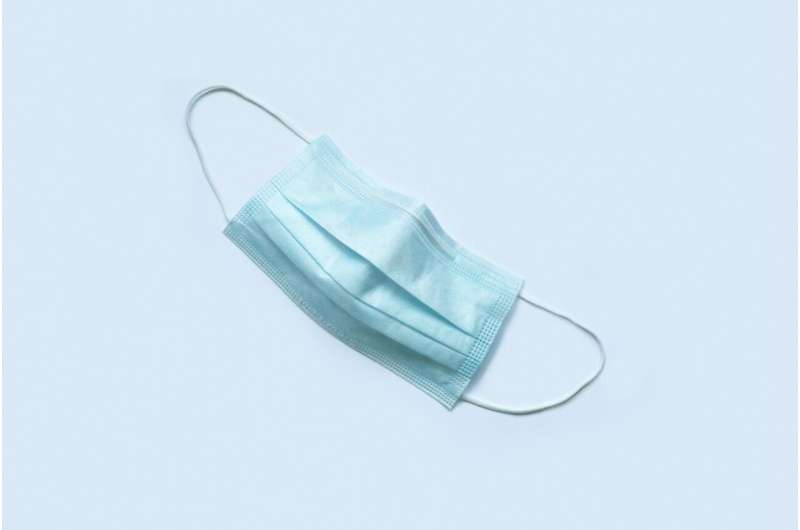Managing 'no-mask' anxiety

Having a tough time being around people without masks again? That's not surprising, considering how our brains work, says Abigail Hardin, Ph.D., a psychologist and assistant professor at Rush University Medical Center.
"Our brains have evolved specifically to detect threats," Hardin says. "Since the pandemic began, the fear center of our brains has been activated by seeing people unmasked. We've been pairing the experience of fear, including the fear of illness and potential death, with the experience of seeing someone unmasked, for more than two years. So it will take some time to unlearn that process or unpair those two experiences."
Understanding possibility vs. probability
To help us with that "unlearning" as we enter this new phase of the pandemic, Hardin recommends thinking about the difference between a possibility and a probability.
If you're feeling anxious around someone unmasked in public, it might be worth asking yourself, "Is it possible that I can get COVID-19 in this situation?" The answer is yes, although it is much less probable now than during the recent surge. Consider that about 68% of people ages five and older in Illinois are fully vaccinated, and the Chicago area currently has a low COVID-19 community level.
Then ask yourself, "Is it likely that I will get COVID-19 in this situation?" To answer that, you will need to consider your own health and vaccination status, whether you are indoors or outside, how crowded an area is and so forth. Generally speaking, if you are fully up to date on your vaccinations (meaning vaccinated and boosted if you are eligible), your risk for infection or severe COVID-19 is much less compared with people who are unvaccinated.
As the Centers for Disease Control and Prevention says, the decision to wear a mask can be based on personal preference informed by personal level of risk. So if you decide to keep your mask on—or avoid situations with unmasked people—that's your choice.
Don't judge your body
What if you do want to remove your mask in public but you start to feel anxious? Hardin suggests not being judgmental about your body's reaction. "Look at your anxiety the way a scientist would," she says. "Where are you feeling it? Is your chest tightening? Do you have butterflies in your stomach? Are your hands starting to sweat? Just acknowledge it but don't place a value judgment on it."
When you start to feel anxious, it's important to remember that you don't have to change anything—you can just wait until the anxiety fades. "The thing about anxiety is that it never sticks around for too long, our bodies just won't let it," she says. "It will hit the high and then come back down. So if you can surf the wave, then you might find yourself feeling more centered."
All about boundaries
In the coming weeks or months, you may choose to set boundaries regarding when you want to wear a mask or when you want to enter a public space. Such boundaries are lines that you set for yourself, not for someone else, Hardin says.
Setting effective boundaries requires the ability to communicate assertively, she says. Assertive communicators often use phrases like, "I feel," "I want" and "I need," without becoming aggressive or upset, she adds. So if your friends want to go to a venue where there's no mask requirement but you still want to wear a mask, you might say, "Hey, I understand that you're comfortable taking your mask off, but I'm not yet. So I need to keep my mask on for the rest of the day. Thank you for understanding."
Dealing with FOMO
As many people return to pre-pandemic activities, those who have weakened immune systems or other conditions that prevent them for fully returning to "normal life" may experience a "fear of missing out," also known as FOMO.
If you are living with an autoimmune disease, disability or other condition that puts you at risk, Hardin recommends staying connected with others in a similar situation, even if it is just virtually. "This can help you maintain that social connectedness, so you don't feel like you're being left behind as the world opens up," she says.
And as more social opportunities become available, Hardin recommends considering the needs of the most vulnerable in your family or circle of friends and choosing activities that fit everyone's personal risk and comfort level.
"The impetus needs to be on those of us who are able-bodied or are low risk, so we can be allies to our friends and loved ones who are at higher risk for COVID-19," Hardin says. "We all want the world to go back to normal, and the reason we want that is because we all want to feel connected to each other again."





















